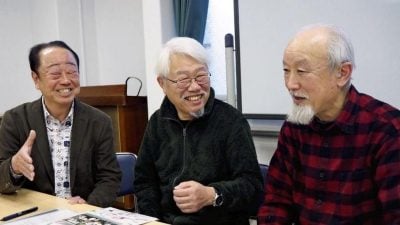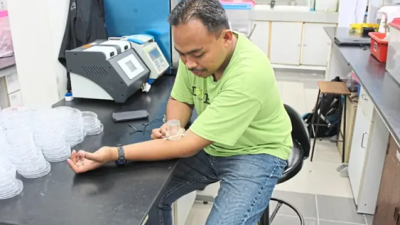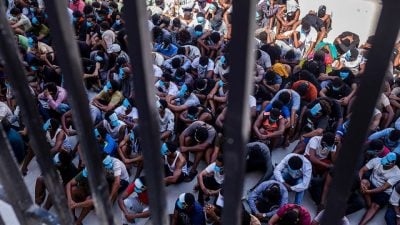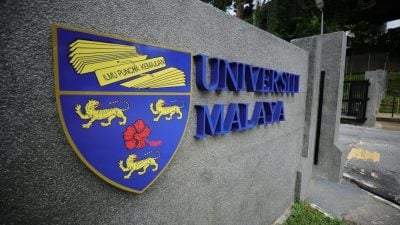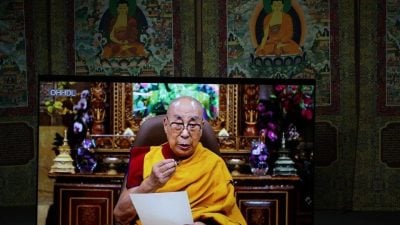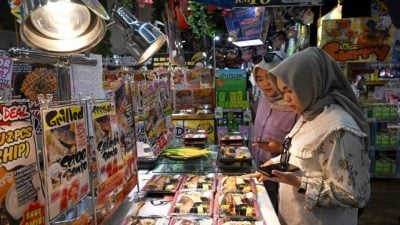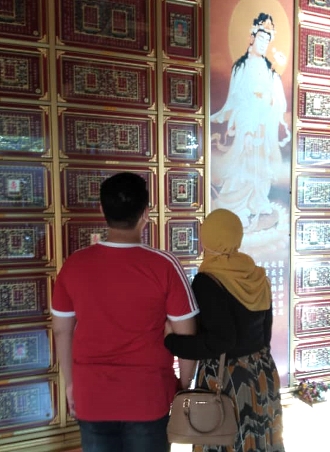
PETALING JAYA, Apr 5 (Sin Chew Daily) — Chinese Muslims in Malaysia continue with the customary practice of paying respect to their ancestors during Qing Ming, also known as tomb-sweeping festival.
He-Ping Chinese Muslim Society secretary Xiong Ying Feng visited her grandmother's urn kept at a columbarium with her son.
Converted to Muslim in 1993, Xiong reminded her son the significance of Qing Ming for the young ones to be filial to their parents.
In Quran, Xiong said Muslims are reminded as many as 11 times to be filial to parents.
"Qing Ming is a gesture of remembering deceased parents. We should abide by the practice as much as possible," she said.
Xiong said Chinese Muslims would not be kneeling before the graves, praying with jossticks or burning prayer papers.
Instead, she would 'inform' her deceased father and grandmother in her heart that 'she is here' to visit them and bowed in front of their graves.
Malaysian Chinese Muslim Association (Macma) vice president Huang Xiu Mei said she joined her relatives at the cemetery on tomb-sweeping day but she would not be performing prayers like the others.
"Even if our religion is different, we still respect our ancestors. The event is a family activity," she said.
On whether to consume food after prayers, Xiong said food would be consumed as normal items.
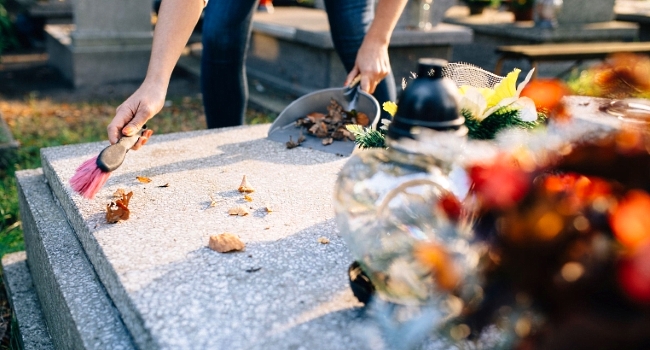
But Liu Jin Guo, 71, the Selangor Macma chairman, said Muslims should not consume food offered in a prayer.
Liu brought his wife to join his family members on tomb-sweeping day to pay respect to his parents every year.
"They raised me before I became a Muslim. There should be no problem paying respect to them,'' he said.
Macma president Prof Taufiq Yap Yun Hin said many misinterpreted Islam as a Malay religion.
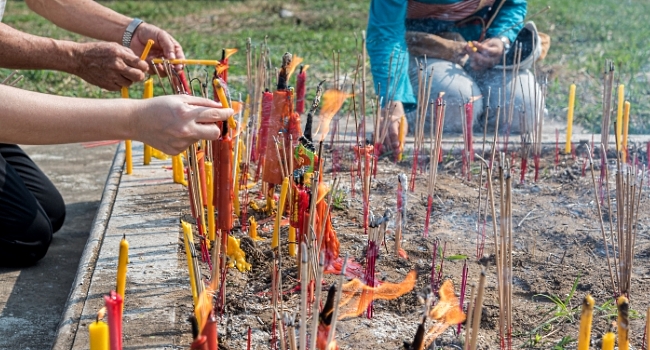
"Without our ancestors, we would not be here. We should be clear about our religion but retaining our culture is equally important," he said.
Yap sad even after embracing Islam, Chinese are still able to keep their traditions.
"We are not Malays. We are still Chinese. Culture and religion are two different things," he shared this during a recent virtual event organized by the women's wing of Kuala Lumpur and Selangor Chinese Assembly Hall on whether Chinese Muslims should celebrate Chinese New Year.
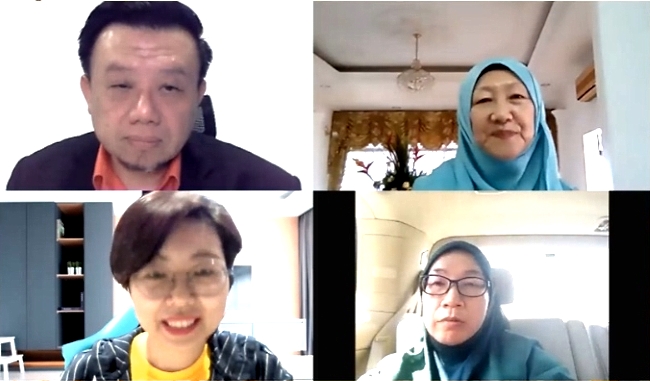
ADVERTISEMENT
ADVERTISEMENT






